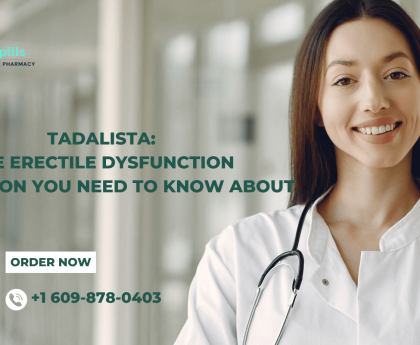Antioxidant supplements are widely used and generally regarded as healthful. This is partly due to the fact that antioxidant-rich fruits and vegetables are linked to several health advantages, such as a decreased risk of illness. However, there is compelling research that suggests taking antioxidant supplements may be harmful to your health.
Consumable antioxidants, such as vitamins and other chemicals, can help shield your cells against cellular deterioration. They accomplish this by preventing another class of molecules in your body called free radicals from having any potentially negative consequences. Antioxidants come in a variety of forms. They may be obtained through the food you eat or naturally created by your body. Some antioxidant kinds are offered as dietary supplements.
What Are Antioxidants?
Antioxidants are chemicals that can aid in your body’s defense against harmful free radicals. In reaction to pressure, stress, and the environment, your body creates free radicals. Exercise, food digestion, and exposure to air pollution are a few examples. The vitamins C, A, and E, beta-carotene, and lycopene are among the antioxidants that are most prevalent in plant-based meals.
By removing harmful free radicals from the bloodstream, an antioxidant-rich diet may lower the risk of numerous illnesses. For instance, lycopene, an antioxidant present in tomatoes, may lower the risk of prostate cancer in males.
Do Antioxidant Pills Have Any Advantages?
Ideally, if you eat a healthy, diversified diet, you shouldn’t need to take antioxidant supplements. You should only take supplements if you are deficient in anything. For instance, osteoporosis patients may require more calcium and vitamin D, whereas vegetarians may require iron or vitamin B12.
It’s doubtful that taking antioxidant supplements will have any effect on your health if you eat a healthy, balanced diet and don’t have any vitamin deficits. More than 100,000 participants participated in meticulous scientific research to determine whether antioxidant supplements may help prevent chronic conditions, including cancer, cataracts, and cardiovascular illnesses. In most cases, taking antioxidant supplements did not lower the chance of contracting these diseases.
Antioxidants Do Help Combat Free Radicals
One of the numerous dangers that your cells must avoid is the presence of free radicals. Your body naturally produces these chemicals, which are safe at low concentrations. But some environmental exposures can make them more plentiful. Examples of variables that might raise your free radical levels include smoking cigarettes, inhaling polluted air, and becoming sunburned.
Your cells can interact with free radicals, which could alter their genetic composition, structure, and function (DNA). When cells start to act strangely, this might cause a variety of issues. On the other hand, antioxidants can intervene and stop this procedure, shielding your cells from free radical harm.
What Happens If You Consume An Excessive Amount Of Antioxidant Supplements?
Antioxidant supplements might harm your health if you consume them in large numbers. Antioxidant supplementation has more negative effects on health than positive ones. Large dosages of antioxidant supplements are not advised for a variety of reasons.
Could Make Exercise Performance Worse
Free radicals are a normal result of your body’s energy metabolism during exercise. Your body creates more free radicals the harder and longer you exercise.
Taking antioxidant vitamins would reduce the negative effects of free radicals, which would enhance exercise performance and muscle recovery. Free radicals can cause muscular exhaustion and injury.
Could Increase Cancer Risk
Free radicals’ oxidative stress on the body’s cells is regarded to have a significant role in the emergence of cancer. Taking the best antioxidant supplement has been hypothesized to lower the chance of developing or passing away from cancer because antioxidants combat free radicals.
However, several meta-analyses have demonstrated that taking antioxidant supplements neither lowers the chance of developing various forms of malignancies nor does it lowers the risk of dying from them after they have been identified. In fact, they could potentially make some malignancies more likely.
Could Lead To Birth Defects
The growth and development of the fetus depend on vitamin A; however, taking excessive amounts of vitamin A supplements might raise the chance of birth abnormalities. Therefore, using large amounts of vitamin A supplements are not advised for women who may be or are now pregnant. Only in places like Africa and Southeast Asia, where vitamin A deficiency is common, are these supplements advised for expectant mothers.
Antioxidants Are Plentiful In Food
While research has not conclusively shown the health benefits of utilizing dietary supplements to increase antioxidant levels in the body, the advantages of consuming antioxidants via wholesome meals like fruits and vegetables are undeniable. High-dose antioxidant vitamin tablets may be detrimental in rare circumstances.
Generally speaking, consuming a diet high in fruits and vegetables will provide you with a rich combination of antioxidants. People who practice this often have a decreased risk of chronic illnesses. Antioxidants most certainly aren’t the only factor in these results, though. One of the numerous advantages of eating a lot of fruits and vegetables is the antioxidants included in these meals.
These dietary sources include the following antioxidants that you can obtain:
- Liver, sweet potatoes, carrots, milk, and egg yolks all contain vitamin A
- Broccoli, brussels sprouts, and cauliflower all contain vitamin C
- Almonds, avocados, and leafy greens all contain vitamin E
- Broccoli, asparagus, and apricots all contain carotenoids.
- Beef, oysters, and pumpkin seeds containing zinc
- Brazil nuts, salmon, and shellfish contain selenium.
- Spinach, carrots, pumpkin, and sweet potatoes, contain beta-carotene.
- Tomato, watermelon, and grapefruit all contain lycopene.
Are Antioxidant Supplements Recommended By Experts?
Numerous studies have examined possible connections between various antioxidant supplements and how they could affect your health, occasionally yielding intriguing results. However, the observational studies that revealed some possible advantages of antioxidant supplementation cannot prove that the supplements were the direct cause of the advantageous result.
By administering antioxidant supplements to some individuals and delivering a placebo to others, these studies may more directly examine the association between health and antioxidant supplements, allowing for a more thorough analysis of the real health outcomes over an extended period of time.
Should You Take Pills With Antioxidants? What Are The Best Ones?
Antioxidant supplements come in a variety of formats, including multivitamins, antioxidant blends, pills, vitamins, candies, and powders that may be added to meals or drinks. The best course of action is to see a healthcare expert for guidance on the precise supplement to purchase for your unique health requirements.
They will also be aware of any other drugs you are taking and the safe antioxidant supplements to use. Additionally, it’s crucial to take your supplements exactly as directed because taking excess antioxidant pills might damage your health.
Wrapping Up
Mixing in antioxidant supplements with your daily diet is only as beneficial as eating a nutritious and balanced meal plan. Scientists have also concluded that supplemental antioxidants are harmful due to the resulting increase in free radicals, which can attack cells, DNA, and even proteins.
If you are using or planning on using the best antioxidant supplement to improve your health, It is highly recommended to consult with your physician first. The biggest benefit of taking an antioxidant supplement is that it gives you a false sense of security about its effect on you. So make sure you are mindful of this information and leverage it to support a healthy lifestyle.
Also Read: Erectile Dysfunction: How Do You Appraise?





